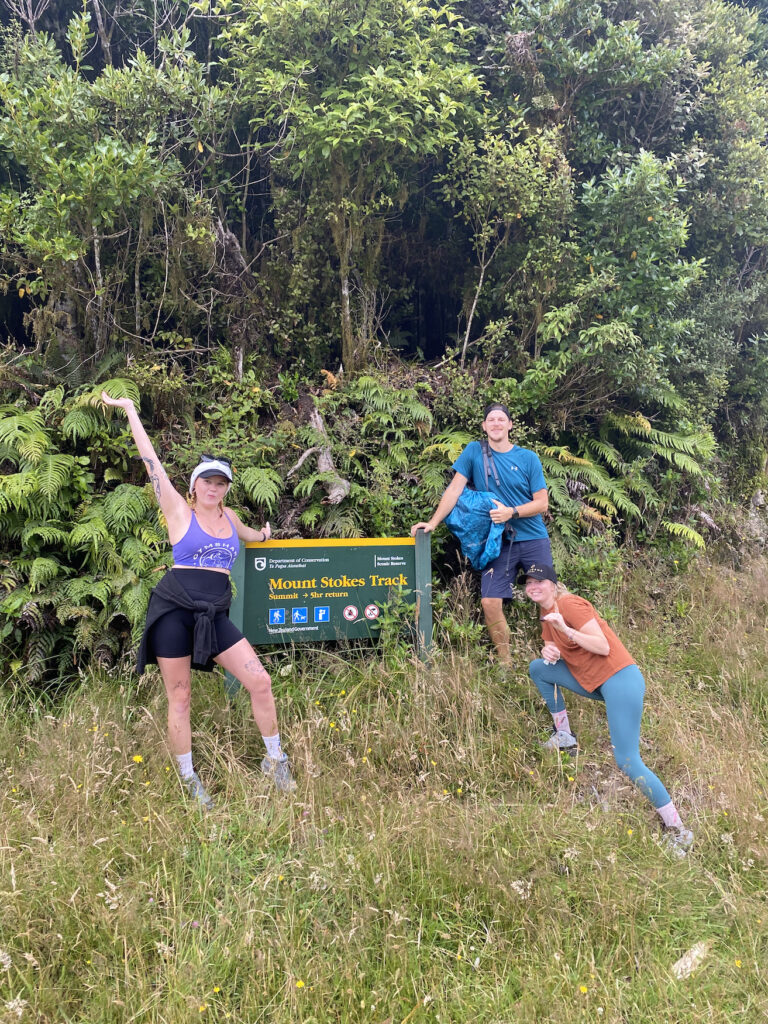Job interviews can be tough and nerve wracking in any situation, let alone when you’ve flown halfway across the world. So here are our tried and tested top interview tips for a live job in New Zealand!
You may have limited funds and are having to pay for accommodation, food, travel expenses and other activities. So you start looking for a live-in job because you’ve read about all the benefits of them in this awesome and comprehensive article about live in jobs in New Zealand.
You’ve applied, they’re responded: It’s interview time.

Interviewing for a live in job is slightly different than a regular job back home because your employer is interviewing you for two things:
- Whether you’ll be able to perform in the job role
- If you’ll fit in with your other housemates.
Basically, are you cool enough to spend many hours in and out of work with.
In this article, we discuss the best interview tips for live in jobs in New Zealand. We use these tips ourselves in interviews and they have given us so much success over our two-year working holiday in Aotearoa.
We cover the following aspects:
- Pre interview tips
- During the interview
- Important aspects to weave into your interview
- Key soft skills that your employer will love
Pre- Interview
There are a few things you can do before the interview even starts to give yourself a head start.
- Research the Employer/ Business:
Familiarise yourself with the prospective employer and their values. This knowledge will demonstrate your genuine interest in the organisation during the interview.
When we interview for anyone, we make sure that we know what the company does, the location, the type of venue it is and whether they have any other venues.
Every single interviewer has, after the small talk, started the interview casually with “have you had a look at our website?” Or “how much do you know about the company?”. It looks great if you can respond with an enthusiastic “Yes!” and have that conversation.
It’s an easy tick in the box.
- Understand the Role:
Clearly understand the responsibilities and expectations of the live-in job. Be prepared to discuss how your skills and experience align with the requirements of the position.
This works both ways- you don’t want to accidentally apply for a job that isn’t what you want.
- Have Good Internet Connection
This may seem out of place, but employers don’t expect you to drive or take a boat just for an interview (it is great if you are already in the area though!). Most of our interviews for live in jobs in New Zealand have been via FaceTime, Skype, or a phone call.
Hence why having a good internet connection is crucial- you don’t want to have a bad experience because of dodgy Wi-Fi.

During the Interview
Our top interview tips are a mix of practical advice that you can implement immediately and showing certain skills that we know employers are looking for.
1. Demonstrate Communication Skills:
Effective communication is crucial in live-in positions. Showcase your communication skills by providing clear and concise responses during the interview. Given that most of your instructions will be verbal, this is an important skill for an employer to know you possess.
2. Use Examples:
Examples are always great to lean on in interviews.
It shows that:
a. You understand the question fully
b. You have experience in a key aspect for the business (otherwise, why are they asking you about it?)
c. You can articulate yourself well (links to communication)
It’s better to say “I am good at *insert skill* and I demonstrated it in *describe situation*”, rather than being vague.
For example:
Employer: “Can you train other staff members, as this role requires you to teach new staff?”
“Yes, I am good at training new staff because I have taught the hospitality basics to many different people, and they have gone on to use those skills on the floor. In my previous role as duty manager, I trained all the new members of staff how to carry three plates at once, how to carry a tray full of drinks, and how to make barista coffee.”
Can you see how this response enables me to sprinkle in many different points that a restaurant manager would be looking for their staff? From this response, it shows that I clearly know the basic skills required to succeed in a restaurant/ bar that would need to be taught, that I can communicate and teach someone else how to do these skills, and that I have been in a position of responsibility to train new members of staff.
Whatever your experience or the question, examples are a great tool to utilise.
3. Emphasize Adaptability:
Highlight your adaptability and ability to thrive in a live-in setting. Discuss experiences that showcase your capacity to handle diverse environments and challenges.
COVID is a great period of time for examples like this. I (Ben) was at writing my dissertation and adapting to the online learning environment. You better believe that I used that example to display my adaptability.
You will have something for this. Just pick a moment from your life wether that be at home or school/university when you may have done something that required you to adapt to the situation and handle change well.. Maybe it was a remote expedition? How you adapted to life in halls? Or just how much you like living rurally?
Likewise, it does help to have experience in other live in jobs. When applying for these jobs, we rely on our previous experience as we know what it’s like living in a remote location with no shops. We understand the difficulty that it brings, and employers know that we won’t be shocked when we can’t pop to the pub!
Once you have done one live-in job in New Zealand, you’ll have an array of specific examples of adapting to new environments.
4. Show your Flexibility:
Highlight your flexibility in adapting to different schedules, tasks, and responsibilities. Employers seek candidates who can adjust to the dynamic nature of live-in roles.
For us as a couple, flexibility is required. Most employers reiterate in our interview that we may not be able to have the same days off or the same shift pattern all the time. And we completely understand! It’s hospitality.
Areas where you may need to be flexible:
- Changing roster/ hours
- Travelling housemates
- Departments (FOH, housekeeping, kitchen, for example)
In an environment where things can change so quickly in a live in job, flexibility is key.
Can you think of 5 examples where you’ve demonstrated flexibility in your personal and professional life? Write them down in preparation for your interview!
5. Ask Informed Questions:
Prepare thoughtful questions about the live-in job, the employer’s expectations, and the local community. This demonstrates your proactive approach and genuine interest.
This is also your opportunity to find out anything your interviewer has missed out.
Our go to questions because we like to know these things are:
“What does a normal day look like for others in this role?”
“What is the accommodation like?”
“What is the area like, is there any hikes etc. that can be done on days off?”

6. Have a Positive Attitude:
Maintain a positive and enthusiastic attitude throughout the interview. Employers appreciate candidates who bring a can-do attitude to live-in positions.
Smile, be happy, convey good body langue and your employer will be able to see this.
7. Demonstrate Reliability:
Emphasise your reliability and commitment to fulfilling responsibilities, essential qualities in live-in roles where consistency is key.
8. Initiative and Independence:
Live-in positions often require a degree of independence. Living and working in a lodge in the middle of nowhere may lead to you closing the restaurant or bar on your own. It also brings the usual issues of communal cleaning and tidying.
Discuss instances where you took initiative and showed self-motivation in previous roles or situations. This shows that you can think on your feet and that you can work independently, which in turn helps employers to trust you to get the job done and be a good housemate.
Remember: For all of these points, tailor your responses to the specific requirements of the live-in job and the employer’s expectations. Showcase how your skills and attributes make you an ideal candidate for the exact position you’ve applied for and how you can contribute positively to the living and working environment. Have a copy of the job description in front of you if you need.
Have you joined the Facebook group called “Live-in Jobs New Zealand”? This is a group made by us for people like yourselves, looking for live in jobs in New Zealand. We post all of our top tips and recommendations, job adverts, and help you connect with other travellers.
Interview Tips: What NOT To Do
- Avoid Neglecting Research:
We mentioned this above, but don’t go into the interview without adequate knowledge about the employer, the live-in job role, and the organization’s values. Lack of preparation can give the impression of disinterest.
2. Don’t Overshare Personal Information:
While it’s important to discuss relevant experiences, avoid oversharing personal information that may not be directly related to the job. Maintain a professional tone throughout the interview.
You’ll be able to judge this based on how you are interacting with each other. We’ve had interviews that have been like we’re catching up with an old friend and are therefore very chatty throughout. But on the other hand, we’ve had very formal discussions for the job role. Either way, keep it professional.
3. Steer Clear of Negative Comments:
Avoid making negative comments about past employers, colleagues, or experiences. Maintain a positive tone to showcase your professionalism and resilience.
4. Don’t Arrive Unprepared:
Ensure you have all necessary documents, such as your resume and any required certifications. Arriving unprepared can create a disorganized and unprofessional impression. You do want this job, right? Even when this is online it’s useful to have copies of everything, especially if they ask you to send anything extra over.
5. Don’t Interrupt the Interviewer:
Being a good listener is just as good as being a good talker. Practice active listening and avoid interrupting the interviewer. Wait for them to finish speaking before providing your responses to show respect and attentiveness.
6. Don’t Exaggerate Skills or Experience:
Be truthful about your skills and experiences. Avoid exaggerating or embellishing information, as this can lead to credibility issues if discrepancies are later discovered. We have always been honest about our skills; we prefer to show employers what we can do rather than tell them. Strike a balance by showcasing your skills and achievements without coming across as arrogant or a liar.
7. Avoid Being Too Casual:
While live-in roles often involve a personal aspect, maintain a professional demeanour. Avoid being overly casual or informal during the interview. This can be difficult if you think you’re getting along really well, but if you’re going to be friends and talk about general life chit chat, save it for when you’ve got the job. Not while you’re interviewing.
8. Don’t Focus Solely on Benefits:
While live-in jobs may come with housing or other benefits, avoid placing too much emphasis on these perks during the interview. It just doesn’t come across well. Instead, highlight your qualifications, commitment to the role, and how you will be able to benefit the employer if they employ you. The benefits will come.
Remember: Each interview is unique, and the key is to present yourself authentically while demonstrating your suitability for the live-in job. Avoiding these pitfalls can help you make a positive impression and increase your chances of success.
Important Soft Skills for a Live-in Job in New Zealand
Throughout this entire article, we’ve barely mentioned hard/ technical skills. But now we’ve got a section about soft skills?
Yes.
This is because for a live in job in New Zealand as a traveller, all of the skills you’ll need to complete the job will be taught to you. It’s only if you want to climb the ladder a bit into management where you’ll then be expected to have the necessary and relevant hard skills.
Especially in the current job market; New Zealand is crying out for seasonal staff!
Soft skills go so much further than people realise. Especially when travelling.
Demonstrate these soft skills in your interview and use them in your day to day life when (yes, when!) you secure your live in job in New Zealand.
Here are the soft skills that we think you need to be successful in a live in job in New Zealand.
Communication
- Have a positive tone
- Be a good listener (don’t interrupt)
- Use open body language- unfold your arms
Negotiation
- Know your worth- wages, hours, expectations
- Understand what your employer expects from you and what you expect from them
Building Relationships
- Look for common interests with fellow colleagues / housemates
- Add value to your relationships
- Set your personal boundaries
- Have a sense of humour- laughter is everyone’s friend
Empathy
- Take interest in the people around you
- Try to understand things from their perspective
- Acknowledge their feelings
- Support each other where possible
Positive Attitude
- Minimise gossip
- Try not to complain (it can be tough)
- Speak well of those around you
Teamwork
- Don’t take all the credit
- Praise your team publicly and highly
- Celebrate the wins, big and small
Emotional Intelligence
- Impulsive behaviour can be damaging
- If you’re upset, take a step back
- Understand how you are feeling and act accordingly

Securing a live-in job in New Zealand is easy enough when you prepare for the interview properly and are the right fit for the role. There is plenty of work out there, you just need to know where to find it and how to secure it.
By avoiding common pitfalls and using our top interview tips for these kind of jobs, you can enhance your chances of success.
Good luck! We hope this resource helps you out.
If you have any questions and want to reach out to us directly, please either comment on this, post in the Facebook group or message us on Instagram and we’ll do our best to help.






Pingback: February 2024 Travel Newsletter - Jess & Ben Travel